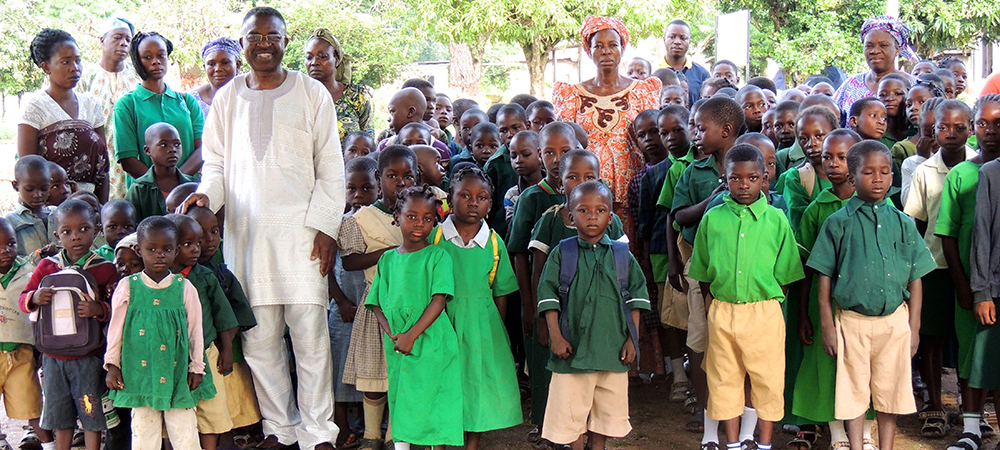The monumental problems impacting the young, neglected populations in the world’s poorest countries will, sooner or later, reach everybody’s borders, posits Dr. Sylvanus Ayeni, a retired neurosurgeon who is also the president and founder of Pan Africa Children Advocacy Watch (PACAW), a nonprofit organization headquartered in Maryland.
“We live in a very complex, unsettling and troubled world, which is shrinking — distance wise — faster than we can imagine,” Ayeni said.
Ayeni founded PACAW in 2007 in response to the devastating deficits in education, infrastructure and healthcare facing African nations, predominantly in Sub-Saharan Africa. PACAW’s primary mission is to nurture and develop a new generation of African leaders who will use the continent’s abundant natural resources to provide a much needed better life for the citizens. PACAW does this by providing access to quality education at public primary and secondary schools, and community development activities.
“The main purpose is to get Nigerian youths to think differently about who they are, their innate capabilities and ultimate responsibility to their nation,” Ayeni said. “Furthermore, to get them to develop a ‘Can Do’ mindset instead of constantly waiting for foreign aid from Europe, the United States, Canada and Asia. Also, to embrace the spirit of selflessness, incorruptibility and nation building.”
PACAW is currently seeking funding to build science laboratories in public high schools run by the state and local governments, an issue that is very close to Ayeni’s heart.
“Many of these schools, sadly, have been totally neglected by the leaders,” he added.
In the 2024 school year, which beings in September, PACAW, in collaboration with Olise Omolu Foundation, will launch an annual multi-state high school essay competition in Nigeria for senior high school students. The goal of this project is to re-orient and guide Nigeria’s youths — the nation’s future — toward a mindset of selflessness, service, incorruptibility and ethical thinking. Support for this endeavor will be greatly appreciated.
“The world would be different — hopefully better — if we realize that there is only one human race, a well-established scientific fact which unfortunately has been ignored for decades,” Ayeni said.


